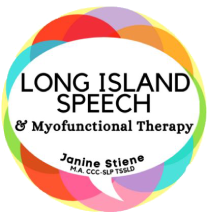Blog
Right Hemisphere Brain Damage
According to the American Speech-Language and Hearing Association (ASHA),
What is right hemisphere brain damage?
Right hemisphere brain damage is damage to the right side of the brain. The brain is made up of two sides, or hemispheres. Each hemisphere is responsible for different body functions and skills. In most people, the left side of the brain contains the person’s language centers. The right side controls cognitive functioning (thinking skills).
Damage to the right hemisphere of the brain leads to cognitive-communication problems, such as impaired memory, attention problems and poor reasoning. In many cases, the person with right brain damage is not aware of the problems that he os she is experiencing (anosognosia).
What are some signs or symptoms of right hemisphere brain damage?
Cognitive-communication problems that can occur from right hemisphere damage include difficulty with the following:
- attention
- left-side neglect
- memory
- organization
- orientation
- problem solving
- reasoning
- social communication (Pragmatics)
Attention: difficulty concentrating on a task and paying attention for more than a few minutes at a time. Doing more than one thing at a time may be difficult or impossible.
Left-side neglect: a form of attention deficit. Essentially, the individual no longer acknowledges the left side of his/her body or space. These individuals will not brush the left side of their hair, for example, or eat food on the left side of their plate, as they do not see them or look for them. Reading is also affected as the individual does not read the words on the left side of the page, starting only from the middle.
Memory: problems remembering information, such as street names or important dates, and learning new information easily.
Orientation: difficulty recalling the date, time, or place. The individual may also be disoriented to self, meaning that he/she cannot correctly recall personal information, such as birth date, age, or family names.
Organization: trouble telling a story in order,giving directions, or maintaining a topic during conversations.
Problem solving: difficulty responding appropriately to common events, such as a car breakdown or overflowing sink. Leaving the individual unsupervised may be dangerous in such cases, as he or she could cause injury to himself or herself, or others.
Reasoning: difficulty interpreting abstract language, such as metaphors, or responding to humor appropriately.
Social communication (pragmatics): problems understanding nonverbal cues and following the rules of communication (e.g., saying inappropriate things, not using facial expressions, talking at the wrong time).
How can I communicate more effectively with a person with right hemisphere brain damage?
- Ask questions and use reminders to keep the individual on topic
- Avoid sarcasm, metaphors, etc., when speaking to the individual
- Provide a consistent routine every day
- Break down instructions to small steps and repeat directions as needed
- Decrease distractions when communicating
- Provide appropriate supervision to ensure the person’s safety
- Stand to the person’s right side and place objects to the person’s right if he or she is experiencing left-side neglect
- Use calendars, clocks, and notepads to remind the person of important information
What causes right hemisphere brain damage?
The causes of right hemisphere brain damage include the following:
- infection/illness
- stroke
- surgery
- traumatic brain injury (TBI)
- tumor





I will right away grasp your rss as I can’t to find your e-mail subscription link or e-newsletter service.
Do you hav any? Please let me recognise so tat I may subscribe.
Thanks.